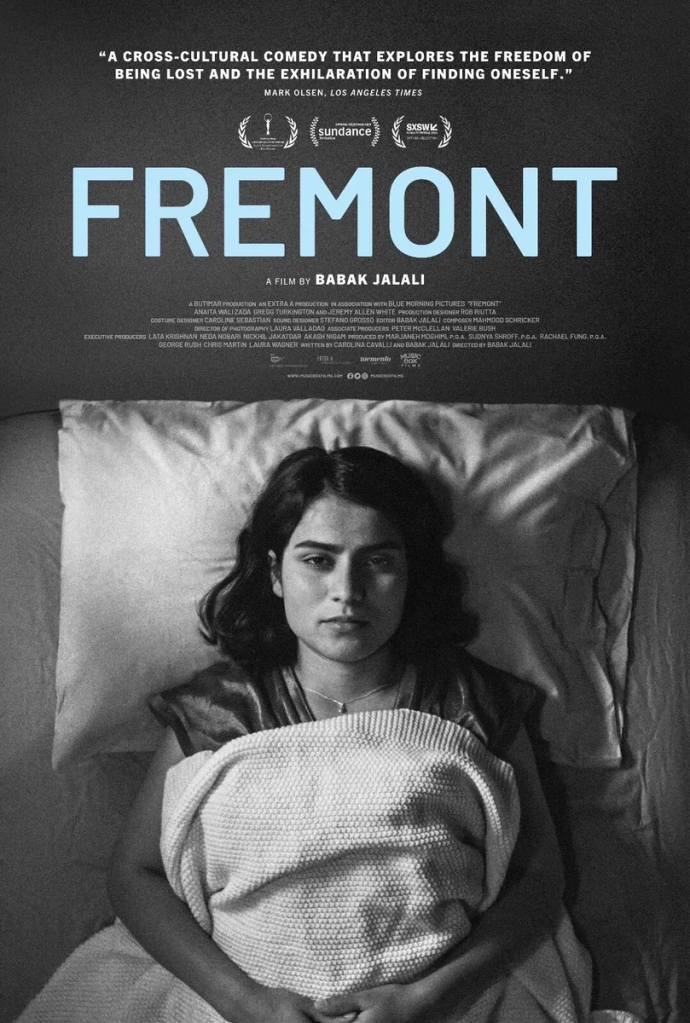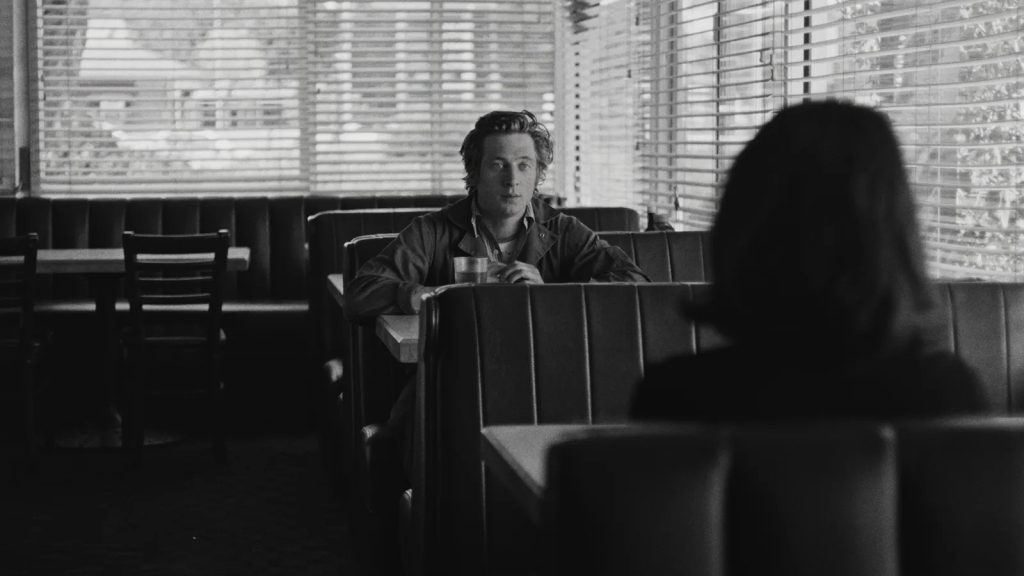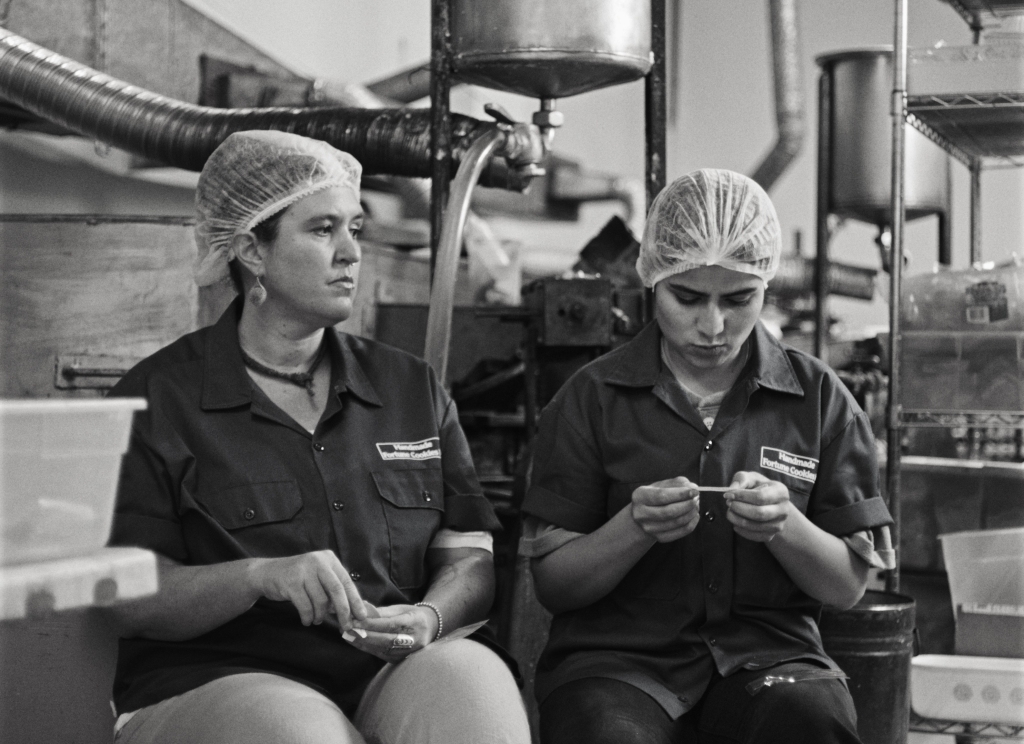timespace coordinates: today in Fremont, California, the town with the biggest Afghan community in the US.

A real-life Afghan refugee and former TV news presenter Anaita Wali Zada plays Donya, a former translator for the US army who lives in a nondescript little apartment with other Afghan expats. This is the fourth feature of London-based Iranian filmmaker Babak Jalali. It is an amazing little indie gem of a movie reminiscent of the early unsuspecting quirkiness and observant calmness of early Jim Jarmusch features. It is a testament of how much alternate weight and down-to-earth importance such small movies can carry in an age of hyperbolic statements, xenophobia, and race to the bottom. Also, we should avoid the easy US collapse of everything into bland “finding oneself” one-liners that some of the reviewers have spewed out.
And when I say race to the boom I mean what is happening about anti-immigrant laws and how difficult life is made for those who try to find a better life elsewhere and are being constantly criminalized. Climate emergency and endless wars have multiplied the number of displaced persons, refugees, and migrants. Yet, today both US presidential candidates (Biden and Trump) are pushing for anti-immigration policies. They have both visited the US-Mexico border in Texas (the state with the biggest Mexico border) and both are trying to militarize the border and restrict asylum. They are competing on a key election issue: immigration. Everyone seems to out-bid each other in the harshness of anti-immigration laws.

This is one of my favorite movies about the afterlife of the Afghan Wars and their aftermath. In a sense it touched only lightly on that reality, but the directors makes sure everything that we understand how the lives of countless people have been affected by such incredible and brutal wars. Suffice to say Donya is working at a Chinese fortune cookie factory and somehow ends up finding her happiness, I do not want to give more spoilers on that.

She is dealing with insomnia and survivor’s guilt and when she gets promoted to the position of fortune cookie copywriter, she starts to write small prophecies and even smuggles messages with the telephone number with the hope of finding human contact and love somewhere out there even where one expects it the least. It is a wonderful movie that we need more in such hard times, creating an atmosphere of incredible gentleness, cozy intimacy, openness, and serendipitous friendliness that seems to be so rare these days. All the relations in this movie are incredibly nice and warming, be it the almost metaphysical discussions with the ‘boss’, or the advice she gets from her friend and fellow fortune cookie co-worker. In a where everything becomes more and more uncertain and hazardous, this movie shows the way.

Maybe it is a specific way that California or the American West turns into the Middle East – a way that turns all the tropes of noir movies and Americana on their head, bringing them closer to a sort of Iranian neo-noir (familiar from the Iranian vampire movie A Girl Walks Alone at Night 2014 hit directed by Ana Lily Amirpour). Artist friend Anca Benera used to tell me about a residency she did in California researching exactly these desertic connections, the way camels were brought into the US. Palms that are so iconic today of the whole Californian or Florida landscape and cinematic universe trees are also new immigrants that have been adopted and are a signature of that region.

One of my favorite scenes is when Donya uses a therapy ‘slot’ ticket from some other fellow Afghan to visit a psychiatrist, Dr Anthony (a phenomenal and humorous performance from Gregg Turkington). It is one of the most telling and hilarious scenes of therapy you’ll see in any movie. It is both unnerving, annoying, bizarre, and ridiculously realistic. There is also a lot to be said about a system that cannot deal with such ‘mundane’ issues as suffering from trauma or actually being the result of US “Great Game” overseas campaigns. After trying to find what ‘her’ problem is and refusing to give her any sleeping pills he pulls out one of his favorite childhood books. Anyone of us has had some similar experience probably. He relates Donya’s story and probably every other patient story to Jack London’s ‘White Fang’, while at the same time succumbing to his own memories of his mom in the most funny cringe way. Basically, nothing of what she says fits into the patterns or profiling that such sessions are supposed to ‘file away’ or solve.